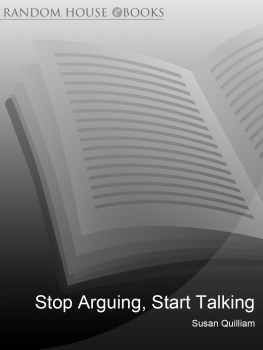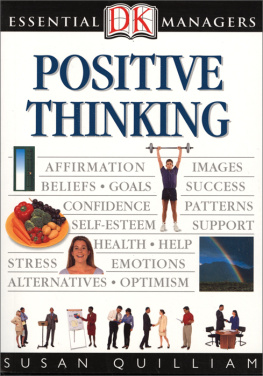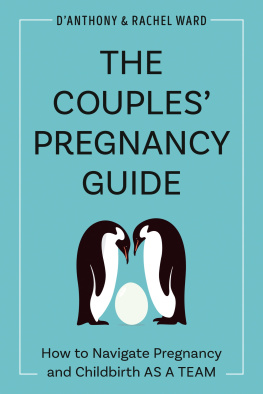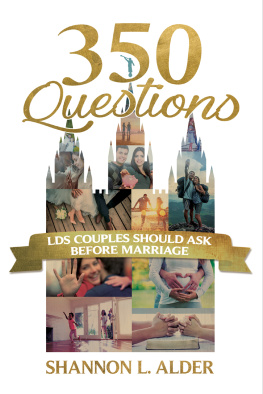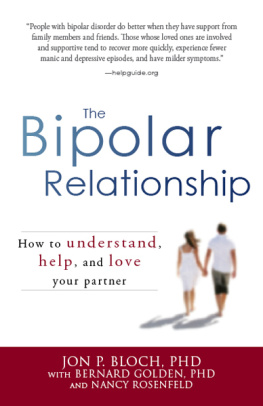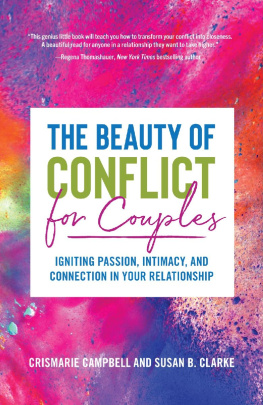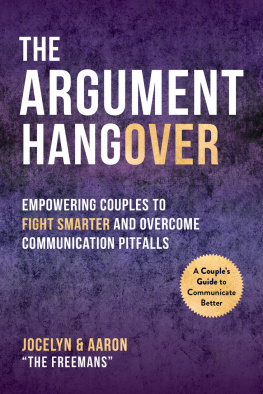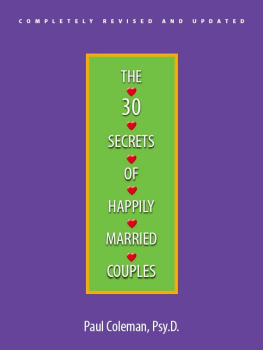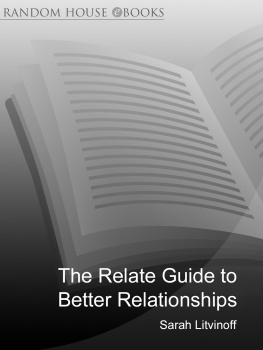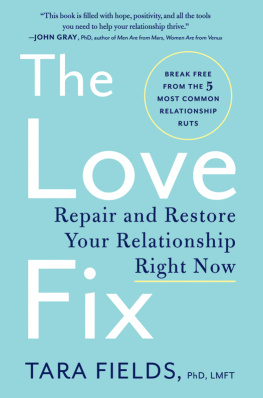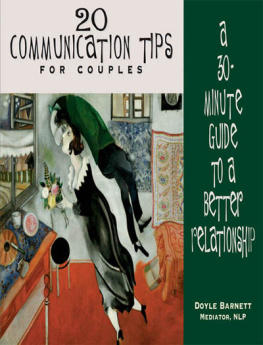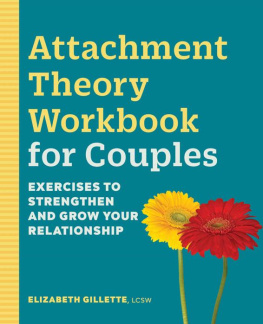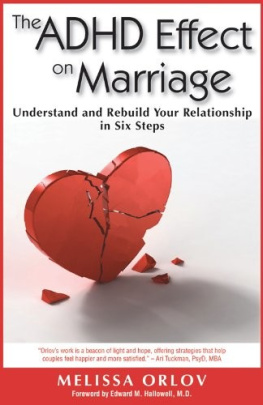Contents
Stop Arguing, Start Talking
The 10 point plan for couples in conflict
Susan Quilliam
with
Relate

Introduction
HOW TO USE THIS BOOK
THIS BOOK IS a practical guide to stopping painful arguments in your relationship. Its ten steps combine the wisdom of actual couples and Relate counsellors in a way that you can use to help yourself. Particularly, the book will support you to understand what happens when youre in conflict, and learn practical skills to manage that conflict.
Youll get most out of the book if you:
- work through the steps in sequence.
- think about the explanations, the couples stories and the worked examples of conversations.
- allow lots of time while you are completing each step, and between each step, to take in what youve understood.
- regularly practise the skills that you learn.
- do the tasks that are included in each step.
As you complete the tasks, turn to Step 10 and answer the questions listed there for each step. This will help you to keep track of what you have learned and your progress in resolving conflict. (You will need to record the relevant information in a separate note book.)
Youll also get most out of the book if both partners in your relationship work through it together, doing the tasks, then comparing notes. But if this isnt possible, you can still benefit. If even one of you starts to understand what is happening and gain skills, your partnership will improve. If youre working through the book on your own, skip the tasks that are marked work together.
Bear in mind that it is often very hard, if not impossible, to try changing your relationship in the middle of a major crisis. Such emergencies may include a death in the family, taking exams, or even just moving house. If you are actively at each others throats, try calling a peace treaty until the crisis is over. Then, when life is less stressful, make efforts to improve your relationship.
A final point. This book has been written for you to use without the aid of a counsellor. But it doesnt replace the expert help that counselling provides. If your partnership shows signs of needing such help if there is violence, drug or alcohol abuse; an ongoing affair; constant bad feeling; an inability to talk to each other at all do contact Relate () for the support you need.
Step 1
DECIDE TO CHANGE WHAT YOURE DOING
SO YOU HAVE arguments. The first thing to realise is that youre not the only one.
The fact that you and your partner differ and disagree, and that your disagreements lead to conflict, may be painful, but its normal. And the fact that your relationship is painful doesnt mean that youre the only couple in the history of the universe to feel like this. It doesnt mean that youre inevitably failing. What it does mean is that you and your partner are two of many millions of people in the world today who have never been shown how to handle conflict.
Of course, your situation will be special to you alone. It could be that you snipe about anything and everything; you pass the marmalade and it causes trouble. It could be there are only a few tricky issues money, kids, friends, sex but when these come up, its as if World War Three has broken out. It could be that when you and your partner disagree its never about anything significant, and afterwards you suffer complete amnesia about what on earth made you scream at each other. Or it could be that your memories are all too active, and that every argument leads inexorably back to the same issue, such as the same unresolved betrayal of decades ago.
Youll have individual patterns to your conflict. Arguments may erupt quickly but then die away. Fights may build slowly, lead to a weekends solid arguing, and then leave you traumatised for weeks. There may be hardly-noticeable, daily skirmishes; or brick-wall, month-long sulks. Your conflict may have started a few months ago, a few years ago, or may have been hovering since the day you met, a lasting and exhausting burden.
But whatever the patterns, one thing will be permanent: the pain. Perhaps its only a minor irritation, but it spoils an otherwise happy relationship. Perhaps its panic: that these arguments mean you have to split up. Perhaps its occasional bubbling fury, so that youre scared youll do something youll regret. Or perhaps its total exhaustion and disillusionment, a feeling that youve been to hell and back.
Now you want the pain to stop. Youve reached a point in your conflict where you think enough is enough. Thats good. It means somethings going to change.
Typically, partners reach their enough point for two reasons. Either something from within your relationship has triggered you into realising that you want and deserve better than you already have. Perhaps youve had one argument too many, have gone over some sort of threshold, and have realised that its all too much. Perhaps you or your partner has been ill, and all at once youve realised, along with the thought of death, that you dont want to live like this any more.
Or, something has happened to make you look around. Perhaps for the first time youre viewing the relationship from the outside and realise that what you thought was a stumbling but basically happy relationship is much worse than that. Perhaps a friend has jokingly commented that you two should give lessons in arguing. Perhaps youve concluded that your arguments are much worse and much more destructive than any other couples, and are going to split you up. Perhaps youve met a couple who seem always to delight in each others company, and youve started to panic that it will never be like that for you.
Whatever your reasons, you have finally called stop. And though it may feel like the end of the road, in fact its a good beginning. The very fact youre reading this book means that things are changing. Youve felt vulnerable, but now youre taking charge. Youve been through a hard time, but now youre doing something about the problem.
WHATS POSSIBLE, WHATS NOT
The first thing to do is to look at whats possible. Conflict can feel incredibly out of control. Theres so much emotion around, the arguments seem to spring from nowhere at the drop of a plate, and whatever you try seems to trigger off another fight. Because of all this, its tempting to want a magic solution. Its tempting to want the wave of a wand that will miraculously and instantly remove all differences, all disagreements, all debates, all arguments, all painful feelings and then replace these things by a perfect and endlessly happy union.
The bad news is that such a magic solution is impossible. The good news is that its also undesirable. If you had a relationship without difference, without disagreement, without debate and without any painful feeling, then what you would have would be hell, not heaven. You would have a relationship with no strength, no heart, no potential for growth, and certainly no humanity. Heres why.
| You cant have a relationship without... | You wouldnt want a relationship without... |
| ... difference: all human beings are intrinsically different, in background, upbringing, personality, feelings, needs and wants. | ... any differences: its complementarity not similarity that makes relationships work. Successful couples balance out each others weaknesses and vulnerabilities. |
| ... disagreement: disagreement is a natural result of difference; as everyone sees the world slightly differently, people will always disagree on some level. |
Next page
